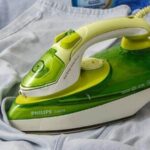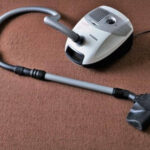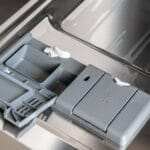If you come from a culture like mine, a wooden spoon is one of the things that will never miss in your kitchen. Every culture is unique and as for mine, we have foods that are specifically prepared using this rustic utensil. There is no any other way around them. It is a customary practice passed down throughout generations.
Wooden spoons come in handy for most culinary tasks. It does not matter whether the process requires ordinary tools or delicate utensils such as non-stick pans. They do not cause scratching, and they are poor heat conductors. On the downside, they can harbor bacteria and accumulate unseen dirt as a result of poor cleaning.
How dirty is Your Spoon?
If you have come across the famous wooden spoon test by Matt Preston, a former MasterChef Australian Judge, you have probably learnt a thing or two about the hygiene of wooden spoons. He urges people to dip their ‘clean wooden spoons” in boing water for 20 minutes and observe the kind of dirt residue that comes of out of them. True to his words, there individuals that have shared their ‘shocking’ results in Facebook.
How to Clean Wooden Spoons
Knowing how to clean wooden spoons is of essence because it keeps dirt and bacteria away. It also leads to better maintenance and longevity of the utensils. See below some of the cleaning methods that you can use depending on the level of cleanliness that you intend to achieve.
Hot Soapy Water
The easiest way to remove dirt from your spoons to use hot water and soap. Dip the spoons in water immediately after use and use a good quality scrubbing pad to remove the dirt. Rinse thoroughly with clean water and hang to dry in a cool place or in an area that receives direct sunlight
Lemon and Salt
A combination of these ingredients is excellent if you intend to get rid of bad smell and stains from your spoons. Begin by passing the spoons through warm water to remove food particles. Dip the cut side of a half lemon in salt and use it to scrub the spoons until the salt is completely dissolved. Rinse with cool water and hang to dry.
Hydrogen Peroxide
The hydrogen peroxide method is important of you feel the need for sanitization. Sometimes you might wash your spoons and place them in a dump place where they develop bacteria. In other occasions, your spoons might come into contact with things and surfaces that you do not trust. Begin by cleaning them with hot soapy water before rubbing them with hydrogen peroxide. Wait for 10-15 minutes before rinsing with warm water and hanging to dry.
Baking Soda and Lemon
Just like with the lemon and salt approach, this method is intended to eliminate bad smell and loose stains. Dip the cut side of a lemon in baking soda and use it to scrub clean wooden spoons. Alternatively, use the two to form a paste and apply it on the spoons. Rinse off with cool water and air-dry.

Vinegar
Combine vinegar and water (ration of 1:3) in a spray bottle and spray you’re your spoons with the solution. Let them sit for about 15 minutes and rinse with warm water. Dry them in the sun or in a cool dry place in your house.
Bleach
Sometimes your wooden spoons and utensils might develop tough stains that cannot be eliminated with any of the above methods. At this point, turn to bleach for the best results. Add a few drops of bleach to a bowl filled with hot water and soak for a few minutes. Clean them with soapy water once you have removed them the solution. Rinse with cool water and air-dry
How to Maintain Wooden Utensils
- The first and most important tip for maintain wooden utensils is to avoid dishwasher. The appliance allows the utensils expand and develop cracks as a result of absorbing and accumulating a lot of moisture.
- Use food-grade mineral oil to condition and treat your wooden kitchenware every now and then. Oil maintains the quality and color of oil. In addition, it repels moisture thereby preventing unnecessary expansion.
- If your kitchen is poorly ventilated, always use a kitchen towel to wipe off excess water after cleaning your utensils.
- Consider using a sand paper to smoothen out your wooden utensils once they begin to develop rough spots.






Excellent piece of writing over here.
You are completely right, It’s important to clean the wooden cookware by hand, and never use a dishwasher.
Thanks and nice cookware